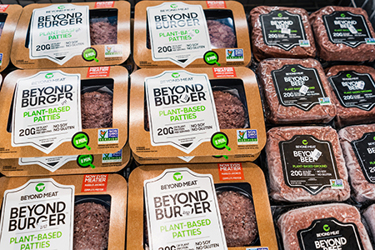Plant-Based Foods: Meeting The Challenges Of Innovation And Food Safety

Manufacturers need a keen understanding of where the greatest hazards are likely in their process and consequently where inspection equipment is most needed so they can develop a specific, tailored food safety approach. Physical contaminant prevention is important and therefore is part of every food safety plan; that is not likely to change.
But what is continuously changing is the addition of new, innovative food products that require consideration of the most appropriate food safety inspection solutions. Innovation is the lifeblood of large food processors to protect their market share and ensure a strong presence on the grocery store shelf – whether that be in a brick and mortar store or virtual. Ensuring the safety and quality of new products is therefore important to ensure that they can grow through introduction of new products and formulations.
One of the fastest growing areas of innovation is plant-based proteins. Plant-based meats aren’t actually “meat” or animal protein; they are food products created to imitate the flavor and texture of traditional meat products but using alternative protein sources. They are but one segment among the alternative proteins that have gained traction in recent years. Some products are vegetable and animal product blends while others 100% plant based. In either case, a method of extracting and concentrating protein from plants is necessary to create the product.
Defending against foreign object contamination
A chief concern is to prevent against foreign object contamination at key points in the process where materials from processing equipment and other sources may become embedded in the product. This is similar to the need to remove foreign objects from animal-based proteins. For instance, in beef processing, metal detection is used as a first line of defense to detect metals like hooks or buckshot embedded in large, unprocessed chunks of beef. While plantbased meats don’t utilize the slaughterhouse, and therefore won’t face that same risk, the products are still highly processed, and each processing step introduces a risk of contamination from the equipment in use.
Get unlimited access to:
Enter your credentials below to log in. Not yet a member of Food Online? Subscribe today.
